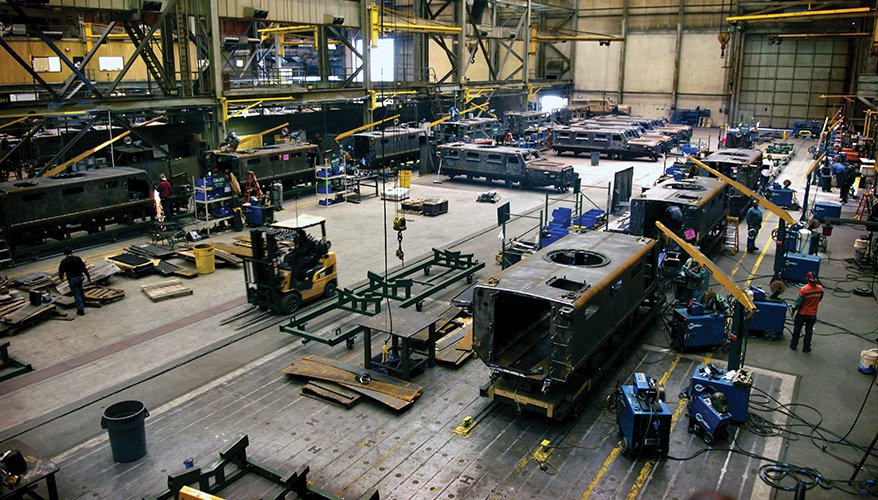
Industrial engineers are professionals who use their knowledge of manufacturing technology to improve processes. They develop new methods and analyze existing systems. Because of their experience, they are highly sought after in engineering services, consulting, and research and design firms.
Industrial engineers are skilled in many areas, but the main focus of their work is to reduce waste, improve production processes, and lower internal costs. These engineers are creative and use logic to design better processes. Some industrial engineers work with automated manufacturing processes.
Engineers need to have a solid understanding of mathematics and other scientific principles. They must also be skilled at problem-solving as well as critical thinking. They should also be able to communicate well and work with others. Ideal industrial engineers will have the ability to look at a system from a wide perspective and see potential weaknesses and strengths.

If you want to pursue an industrial engineering career, you'll need to complete a bachelor's degree and gain at least four years of experience. The Society of Manufacturing Engineers will allow you to become certified. A master's degree allows you to specialize.
There is a high demand for industrial engineers. In the next ten-years, the growth in job opportunities for these professionals will be faster than the national median. This professional's employment is expected to rise by 10% during this period. The majority of the work can be done on a full-time basis. Hours may vary depending on what the project calls for. The average salary for an industrial engineer is $73,856 in Nashville. However, the wage can vary widely from one employer to the next, based on geographic location, employer, and individual qualifications.
It is important to showcase your professional and educational credentials when searching for an industrial engineer job in Nashville. Industry-specific certifications are also required. You may require a professional engineer license if your goal is to work in a government agency.
Many companies hire interns in order to help them understand the intricacies behind industrial engineering. Interns will learn about lean manufacturing, value-stream mapping, and kaizen. Depending on your skill set and the company, you may be able to advance your career to a management position.

No matter if you work in a lab, an office, or both, you will need to have interpersonal communication skills to effectively communicate with your colleagues and managers. Other than communicating with colleagues, you must also be able communicate with customers and suppliers.
Industrial engineers are in high demand. You will find work in a range of industries. These include transport equipment manufacturers, electronic and computer manufacturers, and engineering services firms. Numerous colleges offer 5-year programs in industrial engineering. While many graduates are able to find entry-level positions in multiple industries, a few are more focused on certain specialty areas, such as automated manufacturing processes.
FAQ
How can manufacturing avoid production bottlenecks
The key to avoiding bottlenecks in production is to keep all processes running smoothly throughout the entire production cycle, from the time you receive an order until the time when the product ships.
This includes planning for capacity requirements as well as quality control measures.
Continuous improvement techniques like Six Sigma are the best way to achieve this.
Six Sigma management is a system that improves quality and reduces waste within your organization.
It seeks to eliminate variation and create consistency in your work.
How can we increase manufacturing efficiency?
The first step is to identify the most important factors affecting production time. The next step is to identify the most important factors that affect production time. If you don’t know how to start, look at which factors have the greatest impact upon production time. Once you have identified the factors, then try to find solutions.
What skills do production planners need?
A production planner must be organized, flexible, and able multitask to succeed. Communication skills are essential to ensure that you can communicate effectively with clients, colleagues, and customers.
Statistics
- (2:04) MTO is a production technique wherein products are customized according to customer specifications, and production only starts after an order is received. (oracle.com)
- Job #1 is delivering the ordered product according to specifications: color, size, brand, and quantity. (netsuite.com)
- In 2021, an estimated 12.1 million Americans work in the manufacturing sector.6 (investopedia.com)
- In the United States, for example, manufacturing makes up 15% of the economic output. (twi-global.com)
- According to the United Nations Industrial Development Organization (UNIDO), China is the top manufacturer worldwide by 2019 output, producing 28.7% of the total global manufacturing output, followed by the United States, Japan, Germany, and India.[52][53] (en.wikipedia.org)
External Links
How To
How to Use Lean Manufacturing in the Production of Goods
Lean manufacturing refers to a method of managing that seeks to improve efficiency and decrease waste. It was developed in Japan during the 1970s and 1980s by Taiichi Ohno, who received the Toyota Production System (TPS) award from TPS founder Kanji Toyoda. Michael L. Watkins published the book "The Machine That Changed the World", which was the first to be published about lean manufacturing.
Lean manufacturing is often defined as a set of principles used to improve the quality, speed, and cost of products and services. It emphasizes the elimination and minimization of waste in the value stream. Just-in-time (JIT), zero defect (TPM), and 5S are all examples of lean manufacturing. Lean manufacturing focuses on eliminating non-value-added activities such as rework, inspection, and waiting.
In addition to improving product quality and reducing costs, lean manufacturing helps companies achieve their goals faster and reduces employee turnover. Lean manufacturing can be used to manage all aspects of the value chain. Customers, suppliers, distributors, retailers and employees are all included. Lean manufacturing is widely used in many industries. Toyota's philosophy is the foundation of its success in automotives, electronics and appliances, healthcare, chemical engineers, aerospace, paper and food, among other industries.
Five basic principles of Lean Manufacturing are included in lean manufacturing
-
Define Value- Identify the added value your company brings to society. What makes you stand out from your competitors?
-
Reduce waste - Get rid of any activity that does not add value to the supply chain.
-
Create Flow – Ensure that work flows smoothly throughout the process.
-
Standardize & Simplify - Make processes as consistent and repeatable as possible.
-
Build Relationships - Establish personal relationships with both internal and external stakeholders.
Lean manufacturing, although not new, has seen renewed interest in the economic sector since 2008. Many companies have adopted lean manufacturing methods to increase their marketability. Economists think that lean manufacturing is a crucial factor in economic recovery.
Lean manufacturing is becoming a popular practice in automotive. It has many advantages. These include higher customer satisfaction, lower inventory levels, lower operating expenses, greater productivity, and improved overall safety.
Any aspect of an enterprise can benefit from Lean manufacturing. However, it is particularly useful when applied to the production side of an organization because it ensures that all steps in the value chain are efficient and effective.
There are three types principally of lean manufacturing:
-
Just-in Time Manufacturing (JIT), also known as "pull system": This form of lean manufacturing is often referred to simply as "pull". JIT stands for a system where components are assembled on the spot rather than being made in advance. This approach is designed to reduce lead times and increase the availability of components. It also reduces inventory.
-
Zero Defects Manufacturing: ZDM ensures that no defective units leave the manufacturing plant. It is better to repair a part than have it removed from the production line if it needs to be fixed. This applies to finished products, which may need minor repairs before they are shipped.
-
Continuous Improvement: Continuous Improvement aims to improve efficiency by continually identifying problems and making adjustments to eliminate or minimize waste. Continuous improvement involves continuous improvement of processes and people as well as tools.